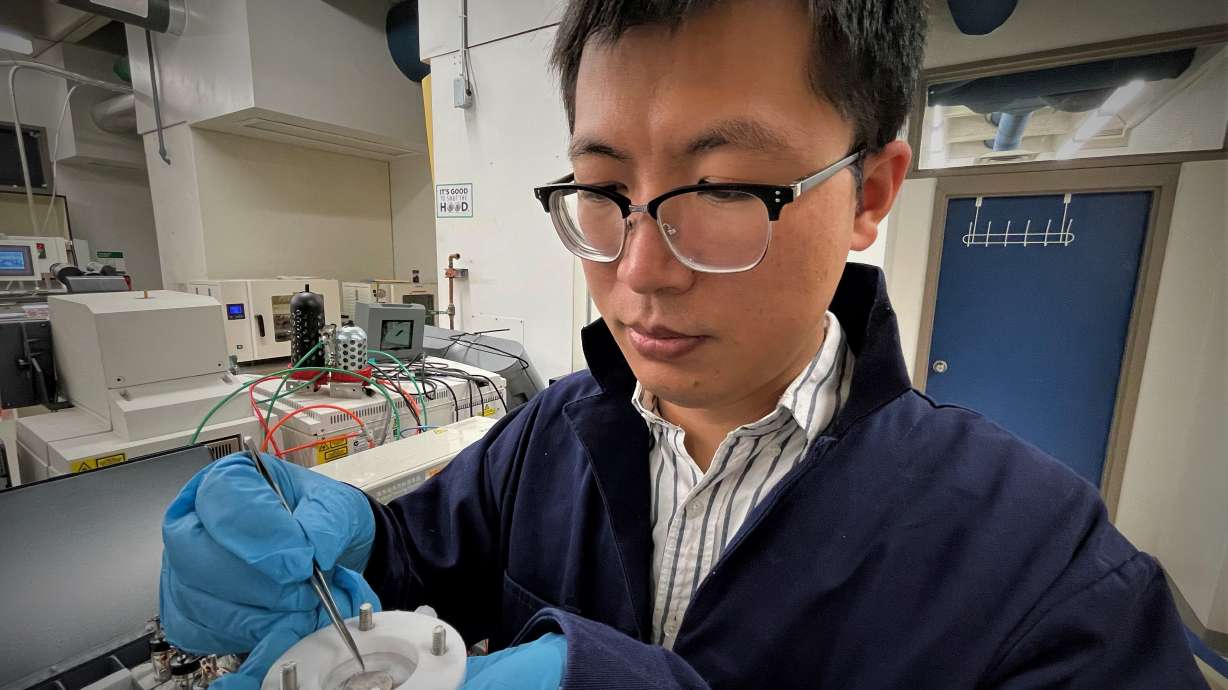Estimated read time: 2-3 minutes
This archived news story is available only for your personal, non-commercial use. Information in the story may be outdated or superseded by additional information. Reading or replaying the story in its archived form does not constitute a republication of the story.
SALT LAKE CITY — New research by a University of Utah professor could lead to faster-charging batteries in cellphones, laptops and even electric cars over the next few years.
U. chemical engineering assistant professor Tao Gao recently published research in a scientific journal showing batteries can be recharged at much quicker speeds than previously thought.
"This understanding lays the foundation for the future engineering work needed to address this challenge," Gao said in a news release. "Now we know where to go. We have a clear vision of what needs to be done."
At the university, Gao is now working on developing innovative lithium-ion batteries with faster-charging capabilities. Lithium-ion batteries are commonly used in cellphones, laptops, some electric appliances, and electric vehicles, like Teslas.
As of 2019, more than 1.4 million plug-in electric cars were sold in the United States with about 165 residents per 100,000 owning one in Utah as of 2018, according to data from USAfacts.org.
According to a Bloomberg New Energy Finance report, it is estimated that by 2040, electric car sales will make up 58% of worldwide vehicle sales.
Speeding up the battery-charging process could save electric-vehicle owners time charging their cars and speed up battery charging for handheld devices as well.
When recharging a lithium-ion battery, a reaction called lithium plating can occur and it happens when the process is too fast, Gao explained.
If the lithium-ion is traveling from the positive electrode to the negative one too fast, plating can occur and cause degradation of the battery or cause dangerous issues like fires or explosions of the battery. Lithium plating impacts how fast a battery can charge safely.
However, Gao's research shows how physics can control lithium plating and predict when it will occur.
"We designed an experiment that can visualize what happens to the negative electrode during charging. We can see the graphite particle – the material in the negative electrode – and we can see what happens during battery charging in real time," he said.
Because of the new discovery, electric car batteries could be charged at five times the speed they charge today, in about 10 minutes and without additional risk of degradation or explosion, Gao said. The same would go for smartphones and other technologies that operate with lithium-ion batteries.
He estimates better batteries could be available to cellphones within the next three to five years and over the next five to10 years for electric cars.
"Now we understand the physics. This provides us direction to address this limitation and improve battery charging performance," Gao said.









